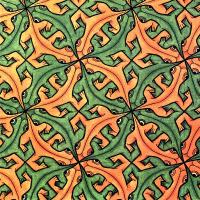Tin nhắn: 8
Nội dung: English
Leke (Xem thông tin cá nhân) 19:22:28 Ngày 05 tháng 12 năm 2013
We feed on blood :: Ni nutras per sango.
We avoid sunlight :: Ni evitas sunlumon.
We rule the humans :: Ni regas la homojn. (would "Ni regas homojn" also be understandable?).
This is a task in part of a game. I'm trying to keep the sentences in a simple repetitive format ([Ni]+[1 verb]+[1 object]). The third sentence is kind of mixed, and player has to arrange some letters to some parts of words so that the sentence makes sense.
Thanks.
Benjamino (Xem thông tin cá nhân) 19:29:17 Ngày 05 tháng 12 năm 2013
Leke:Can you check these translations? Especially the "per" as I wasn't sure what was appropriate, unless "feed on" is like a compound verb where nutri alone is sufficient.I would say "Ni nutras nin per sango."
We feed on blood :: Ni nutras per sango.
We avoid sunlight :: Ni evitas sunlumon.
We rule the humans :: Ni regas la homojn. (would "Ni regas homojn" also be understandable?).
This is a task in part of a game. I'm trying to keep the sentences in a simple repetitive format ([Ni]+[1 verb]+[1 object]). The third sentence is kind of mixed, and player has to arrange some letters to some parts of words so that the sentence makes sense.
Thanks.
Other than that it looks fine to me!
Leke (Xem thông tin cá nhân) 22:12:21 Ngày 05 tháng 12 năm 2013
Vespero_:When speaking about all of humankind, it's common to use "La homaro."So I guess that would be "Ni regas la homaron." as the plural is inferred?
Leke (Xem thông tin cá nhân) 22:13:51 Ngày 05 tháng 12 năm 2013
Benjamino:I would say "Ni nutras nin per sango."Yep, That makes more sense, thanks

Nile (Xem thông tin cá nhân) 04:43:37 Ngày 06 tháng 12 năm 2013
Tjeri (Xem thông tin cá nhân) 10:00:40 Ngày 06 tháng 12 năm 2013
jismith1989 (Xem thông tin cá nhân) 11:14:48 Ngày 06 tháng 12 năm 2013
Tjeri:Ni nutriĝas ... is the most common use.Mi konsentas, vi pravas. Mi ĝin dirus tiel ankaŭ.
I agree, you're right. I'd say it like that too.
Benjamino (Xem thông tin cá nhân) 17:51:37 Ngày 06 tháng 12 năm 2013
Vespero_:"La homoj" is perfectly acceptable too.Leke:Can you check these translations? Especially the "per" as I wasn't sure what was appropriate, unless "feed on" is like a compound verb where nutri alone is sufficient.When speaking about all of humankind, it's common to use "La homaro."
We feed on blood :: Ni nutras per sango.
We avoid sunlight :: Ni evitas sunlumon.
We rule the humans :: Ni regas la homojn. (would "Ni regas homojn" also be understandable?).
This is a task in part of a game. I'm trying to keep the sentences in a simple repetitive format ([Ni]+[1 verb]+[1 object]). The third sentence is kind of mixed, and player has to arrange some letters to some parts of words so that the sentence makes sense.
Thanks.
For example, in SAT's definition of "oni":
* oni. Pron., signifanta «iu ne menciita persono»; «kelkaj aŭ multaj personoj»; «la homoj ĝenerale»



